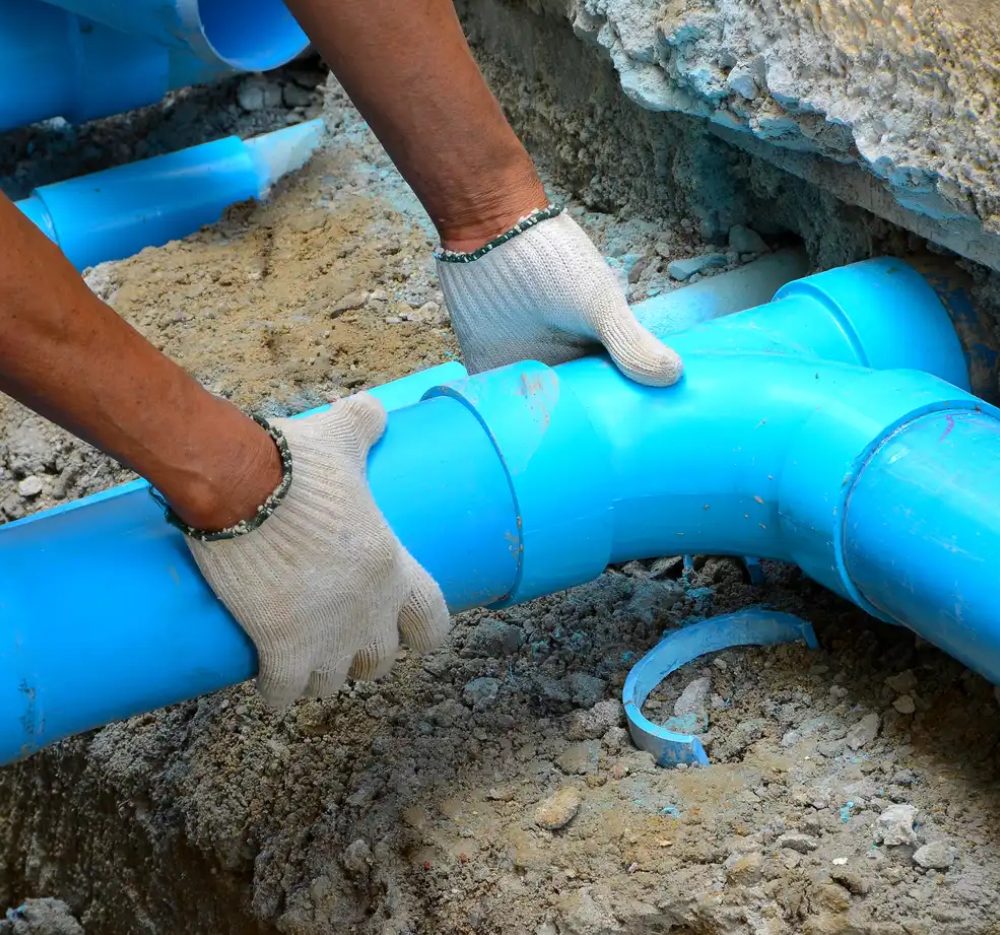Your sewer line is responsible for transferring wastewater safely and efficiently from your plumbing and into treatment facilities. When upgrading or choosing replacements, choosing the right material is one of the most important decisions you’ll make. As a leading provider of sewer repair services in New Port Richey, FL, it’s essential to approach upgrades with care.
Why Material Matters in Sewer Line Upgrades
The type of material you choose impacts the durability as well as resistance to blockages and root intrusion of your sewer line. The following are three common materials you can choose from for your sewer line replacement or upgrade:
PVC: The Versatile Choice
PVC (polyvinyl chloride) has become one of the most popular options for modern sewer lines. Known for its lightweight nature and affordability, it’s a reliable choice for many homeowners.
- Durability: PVC is resistant to corrosion, which makes it ideal for environments with acidic soil or water.
- Ease of Installation: Its lightweight design allows for faster and less labor-intensive installation.
- Low Maintenance: With a smooth interior surface, PVC pipes are less prone to clogs caused by debris buildup.
PVC can wrap under extreme heat, making it poorly suited for installations in areas with extreme heat. Consider your local climate before choosing this material.
PEX: A Flexible Contender
PEX (cross-linked polyethylene) is another innovative option. Commonly used in water supply systems, PEX pipes also offer compelling benefits for certain sewer applications.
- Flexibility: PEX can bend around obstacles, reducing the need for additional fittings and connectors.
- Temperature Resistance: It can withstand hot and cold wastewater, making it a versatile option.
- Longevity: Resistant to scaling and corrosion, PEX can last decades with proper installation and timely sewer line repair.
That said, PEX’s structural integrity degrades from prolonged exposure to sunlight. This material is not ideal for outdoor or exposed applications.
ABS: Tough and Reliable
ABS (acrylonitrile butadiene styrene) pipes have been a go-to material for sewer systems for decades, especially in colder climates.
- Strength: ABS is renowned for its durability. It is capable of withstanding heavy loads and impact.
- Chemical Resistance: Highly resistant to chemicals, ABS pipes are ideal for industrial or high-use applications.
- Temperature Performance: Unlike PVC, ABS performs well in freezing temperatures, making it a good choice for colder regions.
One downside of using ABS is that they’re more expensive than PVC. Some local building codes may restrict its use. Be sure to consult a professional to confirm compatibility with your home.
According to a plumbing expert, “A sewer line is only as good as the materials used. Even the best installation won’t last if the pipe can’t handle the demands of your household or environment.”
The Risks of Choosing the Wrong Material
If you want to replace sewer lines seamlessly, be sure to choose materials that match your specific needs to avoid issues like:
- Frequent Repairs: Unsuitable material may lead to cracks, leaks, or joint failures.
- Root Intrusion: Certain materials are more prone to damage from tree roots. Root intrusions can cause significant blockages.
- Environmental Challenges: The wrong pipe may not withstand soil conditions, temperature fluctuations, or pressure changes in your area.
Tips for Selecting a Professional
Working with sewer lines is no easy task. If you’re looking for a contractor for upgrades, consider the following:
- Experience and Specialization: Work with professionals with the right expertise. They should be familiar with sewer line upgrades and different materials to use.
- Licensing and Insurance: Verify that they hold the necessary credentials to perform the work safely and legally.
- Transparent Pricing: Look for a contractor who provides clear, detailed estimates for materials and labor.
- References and Reviews: Check online reviews and ask for references to confirm the quality of their work.
A specialist reveals the importance of working with professionals: “A qualified contractor will assess your property, recommend the best materials for your needs, and execute the upgrade with precision.”
Upgrading your sewer line is an investment in the functionality and value of your home. By choosing the right material—be it PVC, PEX, or ABS—you can get reliable and lasting performance. Don’t risk costly repairs or system failures by overlooking this critical decision.
The first step towards a better sewer system starts with an expert consultation. Professionals can guide you through material selection and installation, making sure your upgrade meets both your current and future needs.
Do you have any insights from having your sewer line replaced? We want to know. Be sure to tell us down in the Comments!




